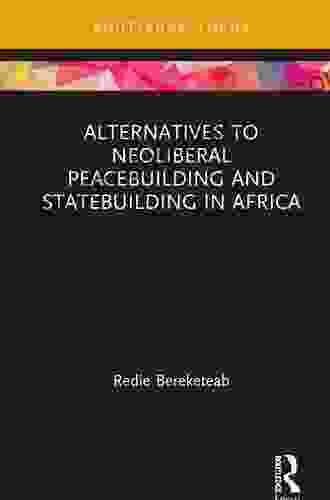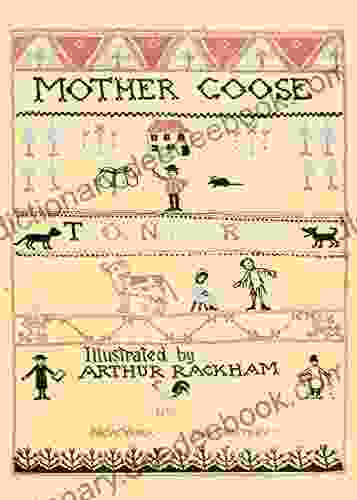Alternatives to Neoliberal Peacebuilding and Statebuilding in Africa: A Critical Examination of Local Ownership and Participation

Abstract
This article critically examines the concept of local ownership and participation in neoliberal peacebuilding and statebuilding interventions in Africa. It argues that local ownership and participation are often used as a rhetorical device to legitimize interventions and to shift the responsibility for their success or failure onto local actors, while in practice, these principles are often compromised or undermined. The article draws on case studies from Liberia, Sierra Leone, and Somalia to illustrate the challenges of implementing local ownership and participation in complex and conflict-affected environments. It concludes by calling for a more critical and nuanced understanding of local ownership and participation, and for the development of alternative approaches to peacebuilding and statebuilding that are more genuinely empowering and sustainable.
4.5 out of 5
| Language | : | English |
| File size | : | 616 KB |
| Text-to-Speech | : | Enabled |
| Screen Reader | : | Supported |
| Enhanced typesetting | : | Enabled |
| Print length | : | 138 pages |
| X-Ray for textbooks | : | Enabled |
Neoliberal peacebuilding and statebuilding interventions have become increasingly prevalent in Africa in recent decades. These interventions are typically characterized by a focus on market-based solutions, privatization, and the reduction of the state's role in the economy and society. They are also often accompanied by a rhetoric of local ownership and participation, which emphasizes the importance of involving local actors in the design and implementation of peacebuilding and statebuilding initiatives.
While the rhetoric of local ownership and participation is appealing, it is important to critically examine how these principles are actually implemented in practice. This article argues that local ownership and participation are often used as a rhetorical device to legitimize interventions and to shift the responsibility for their success or failure onto local actors, while in practice, these principles are often compromised or undermined.
Local Ownership and Participation in Neoliberal Peacebuilding and Statebuilding
The concept of local ownership and participation in peacebuilding and statebuilding has its roots in the critique of top-down, externally driven interventions. These critiques argue that such interventions often fail to take into account the local context and the needs of local populations, and that they can undermine local capacities and institutions. As a result, there has been a growing recognition of the importance of involving local actors in the design and implementation of peacebuilding and statebuilding initiatives.
However, the concept of local ownership and participation is often used in a vague and ambiguous way. This can lead to confusion and disagreement about what local ownership and participation actually entail, and how they should be implemented in practice. In some cases, local ownership and participation may be interpreted as meaning that local actors should have a major role in decision-making and implementation. In other cases, it may be interpreted as meaning that local actors should simply be consulted or informed about the decisions that are made by external actors.
This ambiguity can be problematic, as it can allow external actors to claim that they are implementing local ownership and participation, even when they are not actually ng so. For example, external actors may claim that they are involving local actors in the design of a peacebuilding or statebuilding intervention, but in reality, local actors may only be consulted after the design has been finalized. Alternatively, external actors may claim that they are involving local actors in the implementation of an intervention, but in reality, local actors may only be given a minor role or may be excluded from key decision-making processes.
The Challenges of Implementing Local Ownership and Participation
There are a number of challenges to implementing local ownership and participation in peacebuilding and statebuilding interventions. These challenges include:
* The lack of local capacity. In many conflict-affected countries, local actors may lack the capacity to effectively participate in peacebuilding and statebuilding processes. This may be due to a lack of education, training, or experience. It may also be due to the fact that local actors have been marginalized or excluded from decision-making processes in the past. * The lack of political will. External actors may not always be willing to genuinely involve local actors in peacebuilding and statebuilding processes. This may be due to a desire to maintain control over the process, or to a belief that local actors are not capable of participating effectively. * The conflict environment. Conflict can make it difficult to involve local actors in peacebuilding and statebuilding processes. This is because conflict can create divisions and mistrust between different groups. It can also make it difficult for local actors to travel or to meet with each other.
Case Studies
The following case studies illustrate the challenges of implementing local ownership and participation in peacebuilding and statebuilding interventions in Africa:
* Liberia. In the wake of the Liberian civil war, the United Nations Mission in Liberia (UNMIL) was established to support the peacebuilding and statebuilding process. UNMIL's mandate included a strong focus on local ownership and participation. However, in practice, local actors were often marginalized or excluded from decision-making processes. This was due to a number of factors, including the lack of local capacity, the lack of political will on the part of UNMIL and the Liberian government, and the conflict environment. * Sierra Leone. The United Nations Integrated Peacebuilding Office in Sierra Leone (UNIPSIL) was established to support the peacebuilding and statebuilding process in Sierra Leone. UNIPSIL's mandate also included a strong focus on local ownership and participation. However, as in Liberia, local actors were often marginalized or excluded from decision-making processes. This was due to a number of factors, including the lack of local capacity, the lack of political will on the part of UNIPSIL and the Sierra Leonean government, and the conflict environment. * Somalia. The African Union Mission in Somalia (AMISOM) was established to support the peacebuilding and statebuilding process in Somalia. AMISOM's mandate also included a strong focus on local ownership and participation. However, as in Liberia and Sierra Leone, local actors were often marginalized or excluded from decision-making processes. This was due to a number of factors, including the lack of local capacity, the lack of political will on the part of AMISOM and the Somali government, and the conflict environment.
The case studies presented above illustrate the challenges of implementing local ownership and participation in peacebuilding and statebuilding interventions in Africa. These challenges include the lack of local capacity, the lack of political will, and the conflict environment.
Despite these challenges, it is important to continue to strive to involve local actors in peacebuilding and statebuilding processes. Local ownership and participation are essential for ensuring that peacebuilding and statebuilding interventions are sustainable and effective. They also help to promote peace and stability in the long term.
However, it is important to be realistic about the challenges of implementing local ownership and participation. It is also important to develop new and innovative approaches to involving local actors in peacebuilding and statebuilding processes. These approaches should be based on a deep understanding of the local context and the needs of local populations. They should also be flexible and adaptable, so that they can be tailored to the specific circumstances of each country.
By investing in local ownership and participation, we can help to build more sustainable and peaceful societies in Africa.
4.5 out of 5
| Language | : | English |
| File size | : | 616 KB |
| Text-to-Speech | : | Enabled |
| Screen Reader | : | Supported |
| Enhanced typesetting | : | Enabled |
| Print length | : | 138 pages |
| X-Ray for textbooks | : | Enabled |
Do you want to contribute by writing guest posts on this blog?
Please contact us and send us a resume of previous articles that you have written.
 Book
Book Novel
Novel Text
Text Story
Story Paperback
Paperback E-book
E-book Paragraph
Paragraph Sentence
Sentence Bookmark
Bookmark Synopsis
Synopsis Annotation
Annotation Footnote
Footnote Codex
Codex Tome
Tome Classics
Classics Narrative
Narrative Biography
Biography Autobiography
Autobiography Memoir
Memoir Reference
Reference Dictionary
Dictionary Thesaurus
Thesaurus Narrator
Narrator Character
Character Borrowing
Borrowing Study
Study Research
Research Lending
Lending Reserve
Reserve Academic
Academic Journals
Journals Reading Room
Reading Room Rare Books
Rare Books Interlibrary
Interlibrary Literacy
Literacy Thesis
Thesis Dissertation
Dissertation Reading List
Reading List Theory
Theory Textbooks
Textbooks Ramesh Srinivasan
Ramesh Srinivasan Jennie Marts
Jennie Marts Charlotte Dane
Charlotte Dane Erin Highling
Erin Highling Daniel Guyton
Daniel Guyton Kurt Gaubinger
Kurt Gaubinger Zachary Lukasiewicz
Zachary Lukasiewicz C A Hartley
C A Hartley Deborah Bouziden
Deborah Bouziden Sheena Binkley
Sheena Binkley Donna Sasse Wittmer
Donna Sasse Wittmer Joakim Ahlstrom
Joakim Ahlstrom Dennis R Shealy
Dennis R Shealy Brian P Cleary
Brian P Cleary Barbara J Eikmeier
Barbara J Eikmeier Yena Purmasir
Yena Purmasir Ashley Mcleo
Ashley Mcleo Tazmyn Ozga
Tazmyn Ozga Caroline Graham
Caroline Graham Robert L Harris
Robert L Harris
Light bulbAdvertise smarter! Our strategic ad space ensures maximum exposure. Reserve your spot today!
 Damon HayesFollow ·5.6k
Damon HayesFollow ·5.6k Gilbert CoxFollow ·10.5k
Gilbert CoxFollow ·10.5k Felix CarterFollow ·16.5k
Felix CarterFollow ·16.5k Jaylen MitchellFollow ·13.1k
Jaylen MitchellFollow ·13.1k Gavin MitchellFollow ·4k
Gavin MitchellFollow ·4k Benjamin StoneFollow ·6.3k
Benjamin StoneFollow ·6.3k Edwin CoxFollow ·6k
Edwin CoxFollow ·6k Ryūnosuke AkutagawaFollow ·13k
Ryūnosuke AkutagawaFollow ·13k

 Jerome Powell
Jerome PowellBarbara Randle: More Crazy Quilting With Attitude -...
A Trailblazing Pioneer in...

 Jan Mitchell
Jan MitchellLapax: A Dystopian Novel by Juan Villalba Explores the...
In the realm of dystopian literature, Juan...

 Rodney Parker
Rodney ParkerOur Mr. Wrenn: The Romantic Adventures of a Gentle Man
Our Mr. Wrenn is a 1937 novel...
4.5 out of 5
| Language | : | English |
| File size | : | 616 KB |
| Text-to-Speech | : | Enabled |
| Screen Reader | : | Supported |
| Enhanced typesetting | : | Enabled |
| Print length | : | 138 pages |
| X-Ray for textbooks | : | Enabled |


















